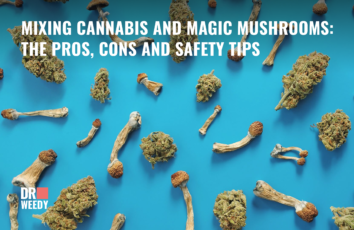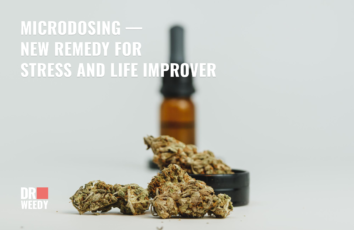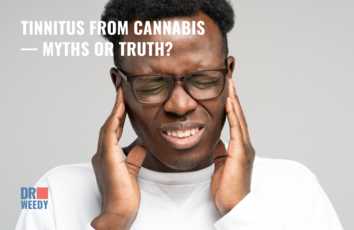Why Do I Shake When I Smoke Weed?
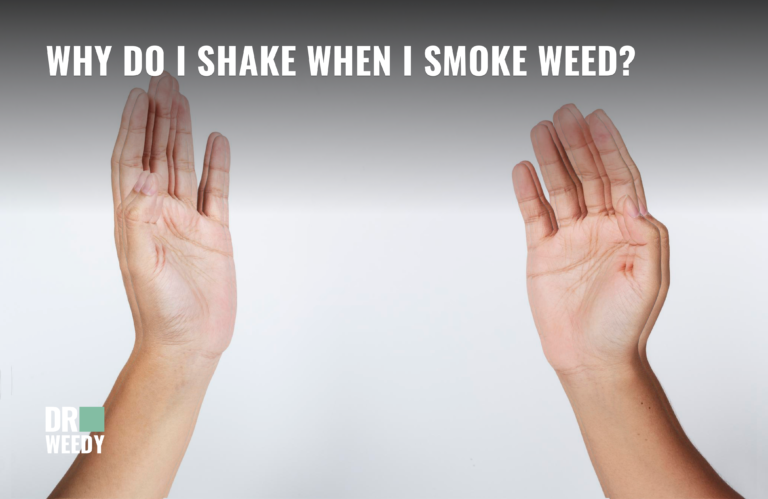
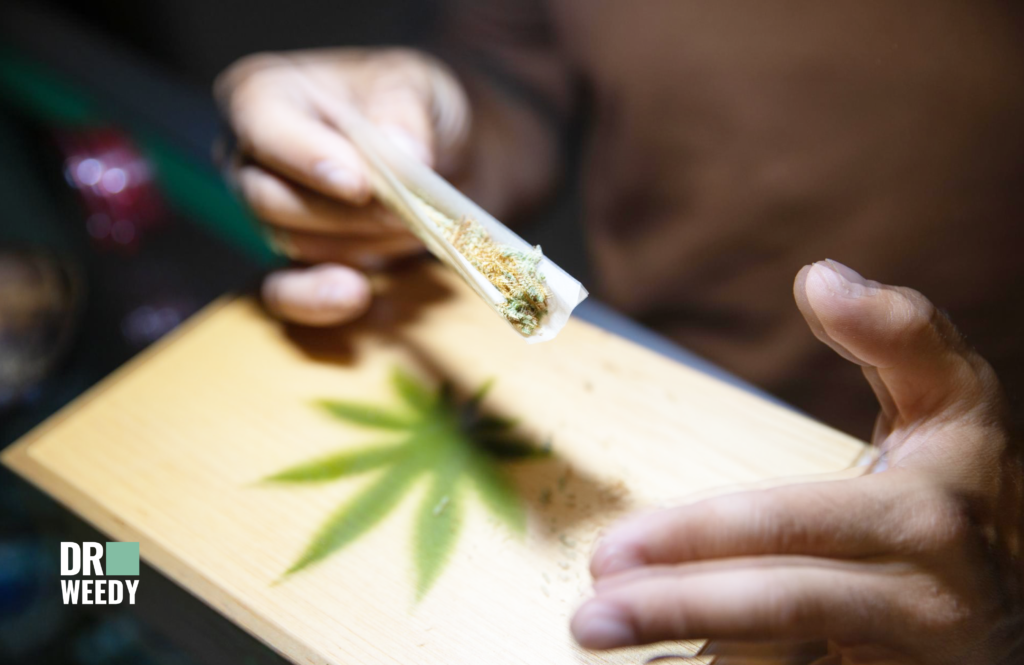
As more states and countries embrace the legalization of cannabis, individuals are taking advantage of the recreational and therapeutic benefits it offers. Yet, amidst the positive experiences, some users may experience an unexpected side effect: shaking or tremors after smoking weed. In this article, we will delve into the reasons behind this phenomenon, considering diverse perspectives and incorporating relevant statistics to shed light on why some individuals may experience tremors when consuming cannabis.
The Multifactorial Nature of Weed Shakes
There are several potential factors that could contribute to shaking after smoking weed. It’s important to note that the causes can vary from person to person, and not everyone will experience this phenomenon. Let’s explore the different elements that may contribute to shaking:
- THC Overconsumption: One possible cause is excessive consumption of tetrahydrocannabinol (THC), the psychoactive compound in cannabis. When THC levels surpass an individual’s tolerance, it can trigger shaking or tremors. According to a study published in the Journal of Parkinson’s Disease, THC may increase the body’s motor activity, leading to shaking in susceptible individuals [1].
- Low Blood Sugar: Cannabis use could potentially lower blood sugar levels, leading to hypoglycemia. When blood sugar drops, shaking or tremors can occur. Although there are few studies directly associating low blood sugar with tremors induced by cannabis use, research conducted in 2016 demonstrated that the acute ingestion of cannabis can lead to a reduction in blood sugar levels. [2].
- Anxiety and Stress Response: Anxiety and stress are well-known factors that can contribute to shaking or tremors. The psychoactive effects of THC can heighten anxiety levels, potentially leading to physical manifestations such as shaking. A comprehensive review highlights the involvement of the endocannabinoid system in regulating anxiety and its interaction with THC [3].
- Strains High in THC: The type of cannabis strain selected can influence the occurrence of shaking. Specifically, strains with a higher THC content, notably those with more than 15% THC, are more prone to trigger shaking due to THC’s psychoactive properties. Research has shown that using high potency THC strains can significantly elevate the risk of adverse effects, including shaking. Daily use of these high potency strains further increases this risk, whereas strains containing less than 5% THC, such as certain types of hash, were not linked to the development of such symptoms [4].
- Cold Exposure: Cannabis lowers body temperature, so cold exposure can exacerbate shaking from blood sugar drops, anxiety, vasoconstriction, etc. Avoiding cold settings can help reduce shakes.
- Crossfading with Alcohol or Medications: Simultaneous alcohol and weed use impairs motor control and balance, increasing shaking likelihood. Checking for drug interactions helps prevent this issue.
Understanding the Individual Experience
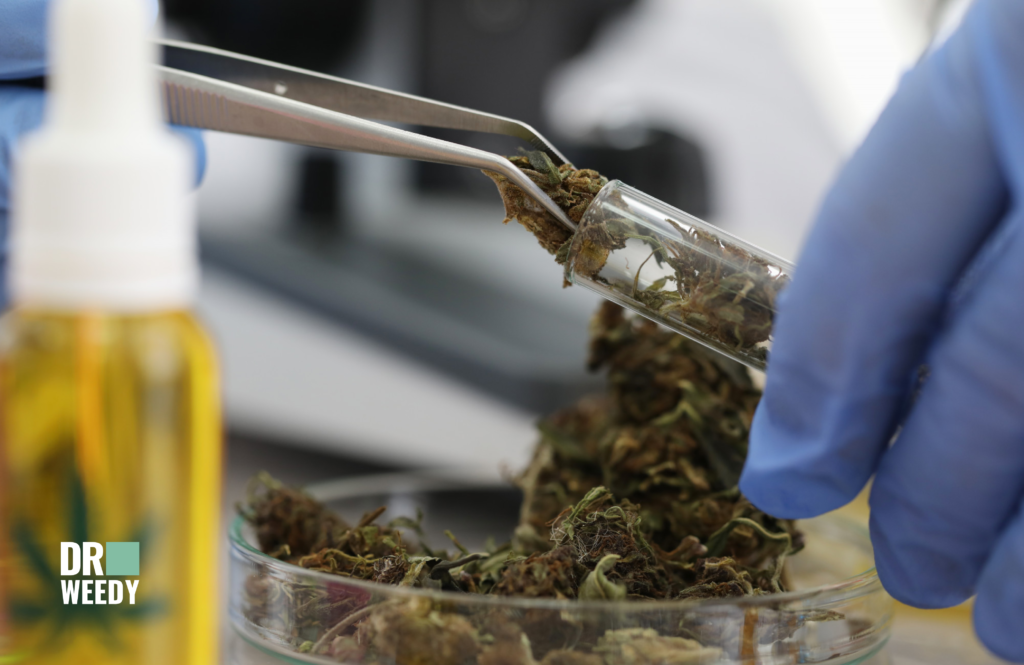
It’s crucial to acknowledge that each individual’s response to cannabis is unique. Factors such as tolerance, personal biochemistry, and overall health play significant roles in shaping the cannabis experience. What may cause shaking in one person may not affect another in the same way. Therefore, it’s essential to consider anecdotal experiences and personal accounts when exploring the reasons behind weed shakes.
Evidence-Based Approaches to Manage Weed Shakes
If you experience cannabis-related tremoring, the following tips can help mitigate temporary symptoms:
- Rest and Hydrate: Sleeping allows your body to metabolize THC and direct energy towards homeostatic functions. Hydrating supports this detoxifying process.
- Raise Blood Sugar Levels: Consuming quick-digesting carbohydrates counteracts low blood sugar, helping resolve associated shaking episodes. Fruit, juices, candy, or other fast-acting snacks create rapid impacts.
- Stay Warm: Heat pads, blankets, warm beverages, and insulating clothes can alleviate temperature-exacerbated shakes.
- Try Supplemental CBD: While not conclusively studied regarding shakes, CBD may help counteract unwanted THC effects thanks to plant synergies. Dosing slowly allows customization.
- Avoid Harm: Refrain from driving, operating machinery, unsafe environments, or adding other substances when experiencing shakes given impaired coordination and judgement.
Managing the Phenomenon

For those who experience shaking after smoking weed, there are strategies to manage and alleviate this symptom:
- Moderation and Dosage Control: Moderating cannabis intake can significantly reduce the likelihood of experiencing shakes. Starting with small doses and gradually increasing consumption allows the body to adjust to THC levels, potentially minimizing shaking episodes.
- Strain Selection: Experimenting with different strains and selecting those with balanced or lower THC levels might help reduce the incidence of shaking. Strains rich in cannabidiol (CBD), a non-psychoactive compound, may offer a more relaxed and soothing experience.
- Supportive Lifestyle Practices: Practicing relaxation techniques, such as deep breathing exercises, mindfulness, or meditation, can help manage anxiety-related shaking. Additionally, staying hydrated, maintaining balanced nutrition, and managing overall stress levels can contribute to a more comfortable cannabis experience.
Are Weed Shakes Dangerous?
While weed shakes can be alarming and uncomfortable, they are generally considered benign and not life-threatening. Shaking after smoking weed is often a temporary and self-limiting side effect. However, it’s essential to note that if you experience severe shaking or other concerning symptoms, it is advisable to consult a healthcare professional for further evaluation. Persistent shaking could potentially indicate an underlying medical condition or interactions with other medications.
How Long Do Weed Shakes Last?

The duration of cannabis-induced tremors or shakes depends on multiple factors like dose, tolerance, metabolism plus ingestion method. While research hasn’t conclusively studied shake timescale patterns, user reports shed some light.
For inhaled methods like smoking or vaping, shakes tend to manifest within 5 to 30 minutes after dosing then resolve within 30 additional minutes as THC blood levels peak and begin declining. However, timescale varies significantly case-by-case.
With oral ingestion from edibles, drinks, tinctures, or capsules, onset delay means shakes manifest around 60 to 90 minutes post-dose. Resolution may take 60 or more additional minutes given extended metabolic processing through the liver before THC reaches the bloodstream.
Additionally, the magnitude of weed shakes impacts duration. More pronounced shaking often lasts longer as the body and brain undergo more significant disruptions to homeostasis and motor control from elevated THC binding levels.

Conclusion
While shaking after smoking weed can be a disconcerting experience for some individuals, understanding the potential causes and incorporating strategies for managing this phenomenon can help users navigate their cannabis consumption with greater confidence. By considering diverse perspectives and exploring the multifactorial nature of weed shakes, individuals can gain insight into their own unique responses to cannabis.
Remember, if you have concerns or the shaking persists or worsens, it’s always advisable to consult a healthcare professional for personalized guidance.
FAQ:
Can certain strains of cannabis increase the likelihood of shaking?
Yes, strains with higher THC concentrations are more likely to induce shaking due to the psychoactive nature of THC.
Should I stop using cannabis if I experience shakes?
If you experience shaking, consider moderating your intake, adjusting the strains you use, and implementing supportive lifestyle practices. If the problem persists, consult a healthcare professional.
Can hydration or diet help in managing weed shakes?
Yes, staying hydrated and consuming quick-digesting carbohydrates can help counteract low blood sugar levels and may reduce shaking episodes.
Does the method of cannabis consumption affect the likelihood of experiencing shakes?
Yes, the method of consumption can influence the experience. Smoking or vaping may lead to quicker onset of effects, including shakes, compared to edibles, where the onset is slower but potentially longer-lasting.
Are certain individuals more prone to experiencing shakes after using cannabis?
Individuals with lower tolerance, those new to cannabis, or people with certain medical conditions may be more prone to experiencing shakes. Genetics, personal biochemistry, and overall health also play a significant role.
Are there long-term effects of experiencing shakes after cannabis use?
Currently, there is limited research on the long-term effects of cannabis-induced shaking. Generally, it is considered a temporary and reversible effect.
Sources:
- Urbi, B., Corbett, J., Hughes, I., Owusu, M. A., Thorning, S., Broadley, S. A., Sabet, A., & Heshmat, S. (2022). Effects of Cannabis in Parkinson’s Disease: A Systematic Review and Meta-Analysis. Journal of Parkinson’s disease, 12(2), 495–508. https://doi.org/10.3233/JPD-212923
- Khalid A. Jadoon, Stuart H. Ratcliffe, David A. Barrett, E. Louise Thomas, Colin Stott, Jimmy D. Bell, Saoirse E. O’Sullivan, Garry D. Tan; Efficacy and Safety of Cannabidiol and Tetrahydrocannabivarin on Glycemic and Lipid Parameters in Patients With Type 2 Diabetes: A Randomized, Double-Blind, Placebo-Controlled, Parallel Group Pilot Study. Diabetes Care 1 October 2016; 39 (10): 1777–1786. https://doi.org/10.2337/dc16-0650
- Maldonado, R., Cabañero, D., & Martín-García, E. (2020). The endocannabinoid system in modulating fear, anxiety, and stress . Dialogues in clinical neuroscience, 22(3), 229–239. https://doi.org/10.31887/DCNS.2020.22.3/rmaldonado
- Stuyt E. (2018). The Problem with the Current High Potency THC Marijuana from the Perspective of an Addiction Psychiatrist. Missouri medicine, 115(6), 482–486.
























